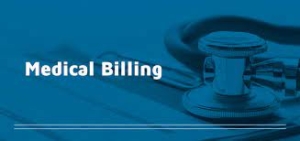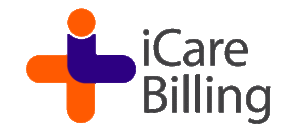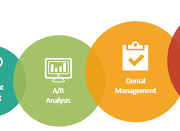A Comprehensive Guidance On Medical Billing Service
In the ever-evolving landscape of healthcare, the effective management of financial processes is paramount. Medical Billing Service, a critical component of this system, plays a pivotal role in ensuring healthcare providers receive timely and accurate reimbursement for the services they render. As the complexity of healthcare regulations and coding continues to grow. Many healthcare providers are turning to professional medical billing services to navigate this intricate terrain. In this comprehensive exploration. We will delve into the world of Medical Billing Services, examining their key functions, benefits, challenges, and the evolving landscape of healthcare revenue cycle management.
Medical Billing Services encompass a range of activities designed to facilitate the reimbursement process for healthcare providers. This includes submitting and following up on claims, coding procedures, and ensuring compliance with healthcare regulations. The scope of medical billing services extends to various healthcare settings, including hospitals, clinics, and individual practitioners.
This is a comprehensive Medical Billing Service, where precision meets efficiency. The dedicated team navigates the complex landscape of healthcare billing, ensuring accurate coding, prompt claims submission, and compliance with industry standards. They specialize in streamlining the revenue cycle for healthcare providers, from small practices to large institutions. Their commitment extends beyond mere transactional processing; they prioritize maximizing reimbursement while minimizing billing errors. By leveraging cutting-edge technology and industry expertise, they empower healthcare professionals to focus on patient care while they handle the intricate financial aspects.
Key Functions of Medical Billing Services:
Medical billing services play a crucial role in the healthcare ecosystem by performing key functions essential to the financial health of healthcare providers. These functions include:
Claims Submission: Accurate preparation and timely submission of insurance claims to ensure prompt reimbursement.
Coding Compliance: Ensuring proper medical code assignment to facilitate accurate billing and adherence to regulatory standards.
Payment Posting: Efficiently recording and tracking payments from insurance companies and patients, maintaining accurate financial records.
Denial Management: Addressing claim denials by investigating and rectifying errors, and resubmitting claims for reimbursement.
Patient Billing: Generating and sending clear, concise bills to patients, facilitating smooth and transparent billing processes.
Credentialing: Managing provider credentials with insurance companies to ensure eligibility for reimbursement.
Revenue Cycle Management: Overseeing the entire financial process, from appointment scheduling to final payment collection, to optimize revenue generation.
Compliance Monitoring: Staying abreast of healthcare regulations and ensuring adherence to billing and coding guidelines.
Technology Integration: Utilizing advanced billing software to enhance efficiency, accuracy, and communication within the billing process.
Reporting and Analytics: Providing comprehensive financial reports and analytics to assist healthcare providers in making informed business decisions.
Benefits of Outsourcing Medical Billing Service:
Medical billing services offer numerous benefits to healthcare providers, contributing to improved financial management, efficiency, and overall operational effectiveness. Some key advantages include:
Cost Efficiency:
Outsourcing medical billing services can result in significant cost savings for healthcare providers. By leveraging the expertise of specialized billing professionals, providers can minimize staffing costs, reduce billing errors, and streamline their financial processes.
Expertise and Compliance:
The ever-changing landscape of healthcare regulations and coding requirements demands a high level of expertise. Professional medical billing services employ skilled professionals who stay abreast of industry changes, ensuring compliance and minimizing the risk of billing errors.
Improved Revenue Cycle Management:
Outsourcing medical billing services often leads to more efficient revenue cycle management. Timely submission of claims, prompt denial management, and effective follow-up contribute to faster reimbursement and improved cash flow.
Focus on Patient Care:
By outsourcing billing responsibilities, healthcare providers can redirect their focus and resources toward patient care. This not only enhances the quality of healthcare services but also contributes to patient satisfaction and loyalty.
Evolving Landscape: Technology and Trends Of Medical Billing Services

Medical Billing Service
The landscape of medical billing services is continually evolving, shaped by technological advancements and emerging trends. Several key elements define this dynamic landscape:
Automation and AI Integration:
The integration of automation and artificial intelligence (AI) technologies streamlines repetitive tasks, enhances accuracy in coding, and expedites claims processing, leading to increased efficiency.
Blockchain for Security:
The implementation of blockchain technology enhances the security and integrity of medical data, providing a transparent and unalterable ledger that can reduce fraud and improve data privacy.
Telehealth Billing:
The rise of telehealth services has prompted the need for specialized billing solutions to accommodate virtual consultations. Ensuring proper reimbursement for remote medical services.
Data Analytics for Revenue Optimization:
Advanced data analytics tools enable medical billing services to extract valuable insights from large datasets, helping healthcare providers optimize their revenue cycle management strategies.
Interoperability Standards:
The push for interoperability in healthcare systems facilitates seamless data exchange between different platforms, reducing errors, improving billing accuracy, and enhancing overall efficiency.
Value-Based Care Models:
Shifting from fee-for-service to value-based care models emphasizes outcomes over volume. Medical billing services must adapt to these models, focusing on performance metrics and patient outcomes for reimbursement.
Patient Financial Responsibility:
With the rise of high-deductible health plans, medical billing services are increasingly focused on educating patients about their financial responsibilities, offering transparent billing practices to improve patient satisfaction.
Regulatory Compliance Challenges:
Keeping abreast of evolving healthcare regulations, such as changes to the Health Insurance Portability and Accountability Act (HIPAA) or ICD coding updates, is crucial for medical billing services to maintain compliance.
Mobile Health (mHealth) Integration:
As mobile health apps and devices become more prevalent, medical billing services are adapting to handle the billing intricacies associated with remote patient monitoring and mobile health interventions.
Outsourcing and Offshoring:
Many healthcare providers are outsourcing medical billing services to specialized companies, leveraging global talent pools and cost-effective solutions to manage billing processes more efficiently.
Final Thoughts:
In conclusion, Medical Billing Service play a crucial role in the financial health of healthcare providers. Outsourcing these services offers numerous benefits, including cost efficiency, expertise, and improved revenue cycle management. However, challenges such as the complexity of healthcare regulations and technological advancements must be navigated with diligence.
As the healthcare landscape continues to evolve, Medical Billing Services must embrace technological innovations, adapt to new care models, and maintain a commitment to compliance and accuracy. By doing so, they contribute to the financial stability of healthcare providers, allowing them to focus on their primary mission—delivering quality care to patients.
In conclusion, the Medical Billing Service is integral to the evolving healthcare landscape, adapting to technological advancements and emerging trends. By embracing automation, AI, and blockchain, these services enhance efficiency, accuracy, and data security. The shift towards value-based care models and increased patient financial responsibility underscores the need for flexibility and transparency in billing processes. Navigating regulatory complexities and incorporating interoperability standards are paramount. As medical billing services continue to evolve, their role in optimizing revenue, reducing administrative burden, and supporting healthcare providers in delivering quality care remains pivotal. Ensuring financial health and operational excellence in the dynamic realm of healthcare.








